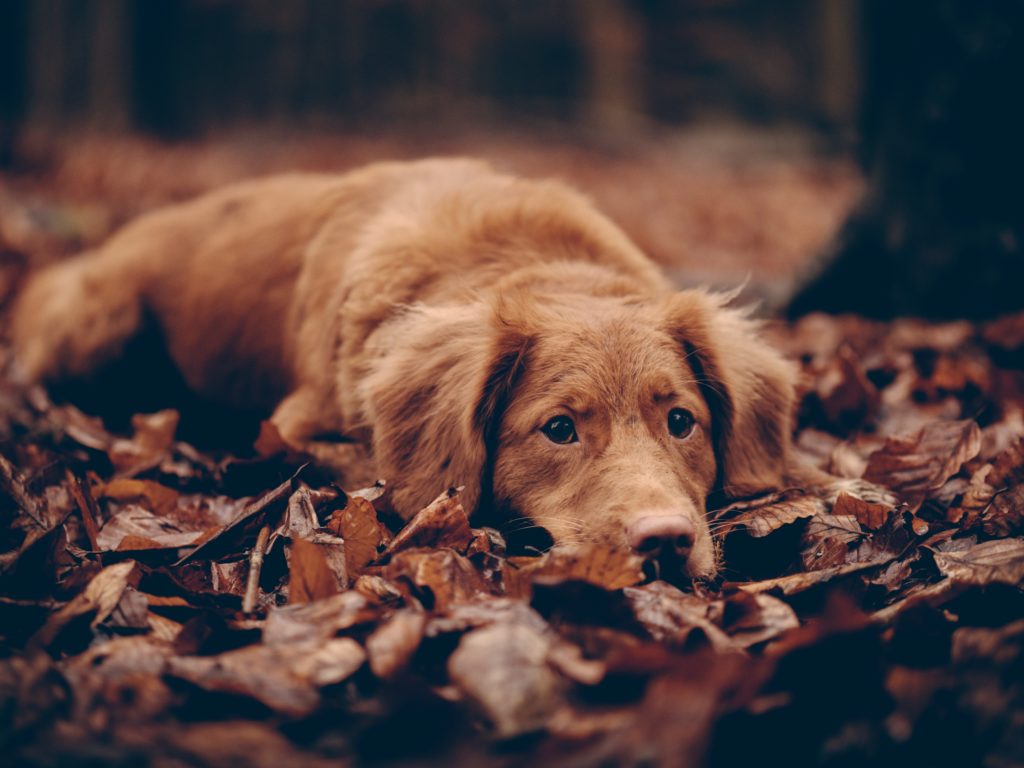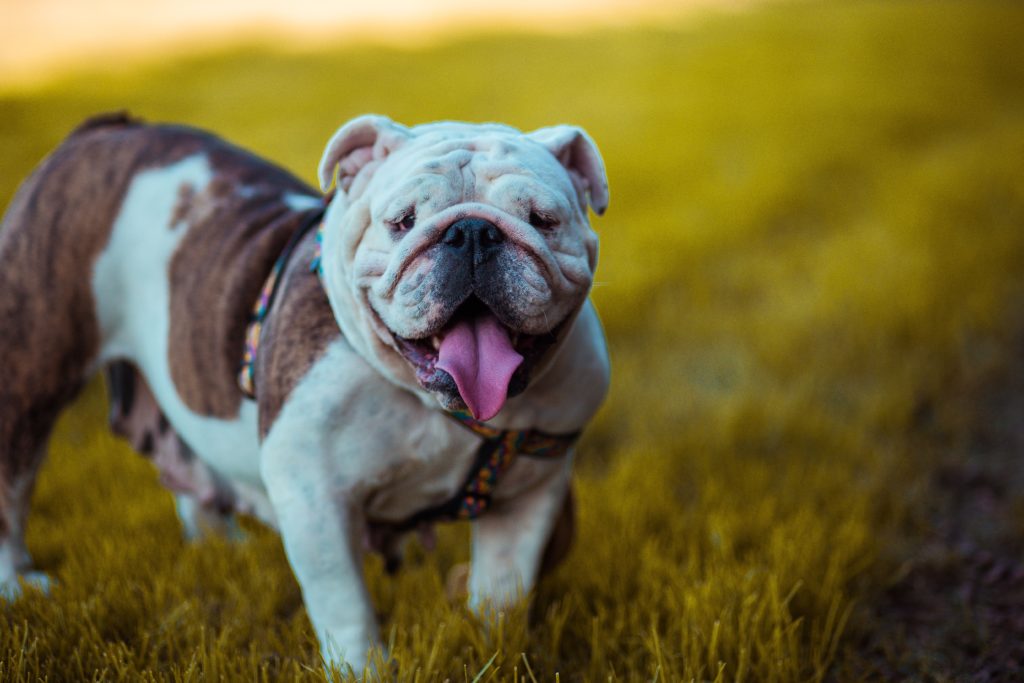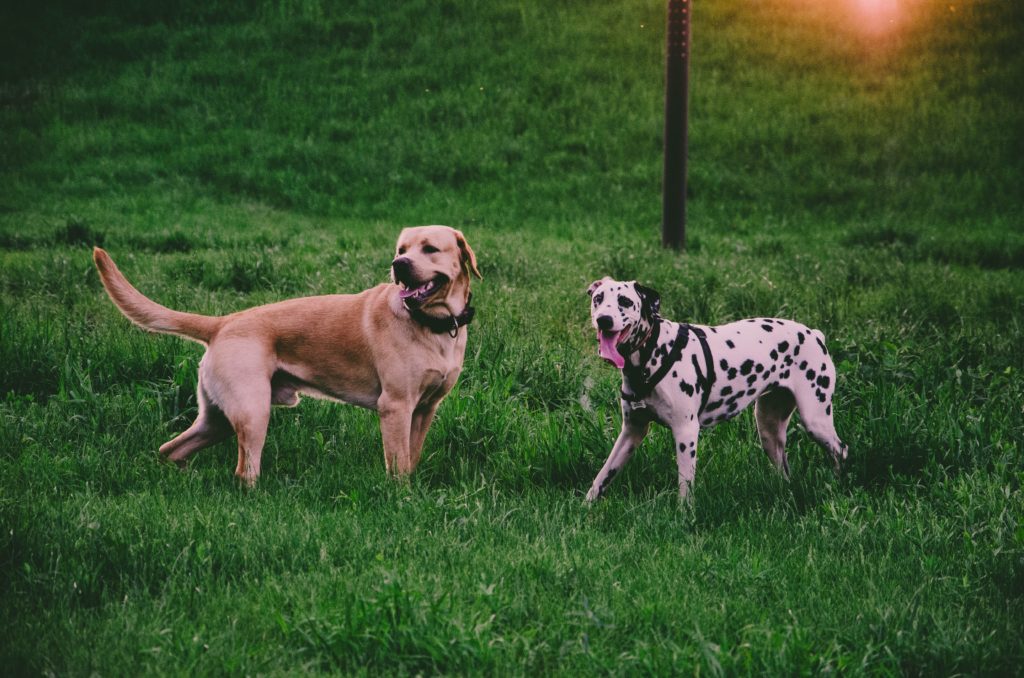Licking is a common behavior in dogs. It is one of the ways canines communicate both with other dogs or with people. However, when licking becomes excessive, it can become a problem in and of itself, or it can indicate an underlying health condition or emotional problem.
Types of Excessive Dog Licking
Excessive licking can manifest in one of two ways. Either self-licking, such as obsessive-compulsive behavior, or to relieve canine pain and discomfort associated with allergies, infection, trauma, or aging. Ultimately your dog will keep licking the area until it’s completely irritated. This behavior is especially worrisome if your dog is licking a wound, which can prevent healing or cause further infection.
Or your dog’s licking habit can manifest as surface licking, such as when a dog licks the floor or the walls or furniture, whatever is in his environment that seems like a good thing to lick. Below are some of the most common reasons your dog may lick excessively.
Normal Reasons Dogs Lick
As normal, everyday behavior, your dog will often lick as a way to clean himself or to express affection. It also can be an appeasement behavior, either pacifying himself or in deference to other dogs that may be more dominant.
Sometimes your dog may lick because he likes the taste of salt on your skin, or the taste of something that’s on the surface of whatever he is licking (for instance, if you drop food on the floor, he may lick the floor, trying to slurp up all the flavor he can find).
And then there are times that your dog licks things simply because he is bored and has nothing better to do. These are all considered normal licking behaviors for a dog and are not usually a cause for concern.
Other Reasons Dogs Lick
 Dogs may lick just because they are hungry or thirsty, especially if mild dehydration sets in. Licking helps to stimulate saliva, which can help when a dog’s mouth feels dry. Dogs also lick as a way to seek attention or to greet people, especially if the behavior is rewarded. Dogs learn that licking gets them the desired attention and so it becomes a habit.
Dogs may lick just because they are hungry or thirsty, especially if mild dehydration sets in. Licking helps to stimulate saliva, which can help when a dog’s mouth feels dry. Dogs also lick as a way to seek attention or to greet people, especially if the behavior is rewarded. Dogs learn that licking gets them the desired attention and so it becomes a habit.
Some dogs lick as a form of play, sometimes in lieu of biting behavior. Some researchers even say licking is a way for dogs to explore, much like babies explore by putting everything in their mouth. When a dog licks, he may be exploring something, trying to discern what it is.
However, excessive licking could indicate a variety of underlying health issues and/or emotional problems that may be more serious and problematic, ranging from canine allergies, fleas, pain, hormonal imbalances, stress or dog anxiety, dry skin, and even boredom. Just keep in mind that excessive is really left up to you to interpret. Some owners find that even a few extra licks here and there are “excessive.”
Always remember, dogs lick things. It’s normal for your dog to lick. Perceiving it as excessive is more your problem than your dog’s problem, unless of course, the licking leads or points to other behaviors and health issues. True excessive licking tends to be licking that’s focused more on him or his environment, not you.
Your Dog Has Allergies
One of the most common medical reasons dogs may lick excessively is due to allergies, especially if he is licking certain spots of his skin such as the inner thighs or licking and biting at his hindquarters. You may also notice him licking his paws, especially between the toes, which could turn the fur in this area dark in color due to the enzymes in his saliva.
Dogs can suffer from allergies from many sources, much like people. This can make it more difficult to narrow down the cause and effectively treat your dog. With allergies, a dog will often have either a canine food allergy or an environmental one. Food allergies can be triggered by an ingredient in your dog’s kibble that his body just doesn’t agree with, such as corn or wheat.
Dogs can also be allergic to certain dyes and fillers that are sometimes placed in dog food. It’s up to you to play investigator to try and figure out what’s causing the reaction in your dog. You might have to eliminate some foods to get to the bottom of the allergy and possibly make a change to your dog’s diet depending on what you find. Note that your dog may also exhibit other symptoms related to food allergies, not just licking. Your dog may have digestive issues as well, such as canine gas, bloating, and even vomiting and diarrhea.
If you believe your dog has an allergy related to his environment, that can be harder to pin down. You may only notice redness and irritation on your dog’s skin, usually where he comes into contact with the allergen. Sometimes he may experience irritation and itching all over. Allergies could include sensitivity to dyes or chemicals in your laundry soap, in your carpet cleaners, or in something you use to treat your yard. Some dogs may be sensitive to cigarette smoke or pollen in the air. Dogs may also lick and chew like mad when they have fleas. Even one flea can drive a dog crazy because many dogs are often sensitive to flea saliva, which is a known allergen.
Your Dog Has Parasites
In addition to dreaded fleas on dogs, pets can also pick up other parasites and even develop bacterial infections related to them. Canine ear mites are common, as well as ticks, lice, fungi, and bacteria. If you notice your dog is shaking his head a lot, scratching his ears, and licking his paws, it could be parasite related. Sometimes dogs develop yeast infections, especially in areas that are warm and moist, such as the anus, along the belly and soft tissue and creases in his legs, and in the ears. With a yeast infection, you may notice an odor as well, especially in his ears. With fleas, your dog may lick or bite his hind end, along the tail, or try to scratch and lick his neck.
Your Dog is Bored
Sometimes a dog will lick things because he is bored and trying to entertain himself. This can be a problem because boredom can lead to other problems, including obsessive compulsive behaviors. OCD is a behavior that is repetitive, such as licking even when there is no known reason for your dog to be licking. It’s a way to manage stress and anxiety but it can become problematic because excessive licking can cause irritation to the area your dog keeps licking. OCD could also be why dogs may repetitively lick surfaces of things like flooring or carpeting. The behavior may seem bizarre, but it could be your dog’s response to emotional duress.
Your Dog is in Pain
Sometimes a dog may lick himself if he is in pain, whether it’s from injury or trauma, or a chronic pain like canine arthritis. This is because when a dog licks himself, it releases natural painkillers called endorphins. Licking also promotes self-healing, by creating moisture and increasing blood flow. You should inspect your dog thoroughly if you think they are licking due to pain to make sure there is no trauma, injury, or foreign body stuck in his skin or paw. If you can’t find any visible reason for your dog’s pain, it could be muscle or joint pain. Some dogs suffer from arthritis and will lick as a way to ease the ache, similar to self-massage.
Your Dog Has Dry Skin
 There are many causes of dry skin for a dog. Some circle back to allergies, while others could be related to a hormonal or metabolic disorder. Dry skin could even be due to bathing your dog too often. A dog has natural oils within his skin and coat that can dry out when he is bathed too frequently. Sometimes just weather changes can impact your dog’s skin. Whatever the cause, dry skin can be itchy and uncomfortable for your dog, which can prompt excessive licking as a way to find relief. Unfortunately, excessive licking can make a minor problem into a big one, especially if your dog’s skin becomes raw and irritated where he keeps licking. This can be painful and lead to infection.
There are many causes of dry skin for a dog. Some circle back to allergies, while others could be related to a hormonal or metabolic disorder. Dry skin could even be due to bathing your dog too often. A dog has natural oils within his skin and coat that can dry out when he is bathed too frequently. Sometimes just weather changes can impact your dog’s skin. Whatever the cause, dry skin can be itchy and uncomfortable for your dog, which can prompt excessive licking as a way to find relief. Unfortunately, excessive licking can make a minor problem into a big one, especially if your dog’s skin becomes raw and irritated where he keeps licking. This can be painful and lead to infection.
Your Dog isn’t Feeling Well
Sometimes a dog will lick because he’s nauseous and not feeling well. This may also be accompanied by other behaviors, such as eating grass and vomiting. If you notice your dog is licking his lips constantly, licking weird places like flooring, carpeting, or walls, or if your canine is eating grass he could be suffering from canine nausea. Your dog may also drool a lot as he is licking. Gastro problems are a common issue that leads to excessive licking in dogs, and it’s not just related to nausea. Dogs with IBS, delayed gastric emptying, giardiasis, or a foreign body in his gastrointestinal tract can all display excessive licking as a symptom.
Your Dog Has Pica
Pica is an obsessive-compulsive behavior that dogs engage in when nutrients may be missing from his diet. The dog will eat things that are not food, ranging from dirt and rocks, to paper, to plastic, to cloth and feces. If your dog has ever eaten the cat litter, this is a form of pica. Though pica can have a variety of symptoms, if you notice your dog excessively licking certain items and then eating them, pica could be the issue.
Your Dog Has Dental Problems
Some dogs may lick as a way to relieve pain or discomfort in the mouth related to dental issues or a gum problem like gingivitis. If your dog chips or loses a tooth, it can feel strange and trigger excessive licking. Dental hygiene is important for your dog’s overall health and should be a regular part of your dog’s care and upkeep. Not only can dental problems cause excessive licking, it can lead to other health issues that are even more damaging.
If the licking is truly excessive, you should see your vet for a health assessment. Sometimes licking can be linked to more serious health issues, like an adrenal or nervous system disorder, or even liver or kidney disease.
Dog is Licking Excessively: What to Do
The first step is to see your vet to rule out any underlying health problems that could be the cause of your dog’s licking behaviors. Based on testing, your vet can determine the best course of treatment, whether that’s diet changes, medication administration, environmental changes, or other treatments. A foreign body for instance, could require surgery to remove. A dog with anxiety and stress may need to see a veterinary behaviorist for help increase the amount of exercise he is given each day to burn off steam.
If you feel your dog’s licking behavior is attention seeking or obsessive compulsive, they can help you to retrain your dog to reduce the excessive licking. If your dog has any kind of parasites or bacterial or fungal infections, antibiotics and antifungal medications may be necessary. Additionally, if your dog has fleas, mites, or ticks, you will need to treat and bathe him to remove the offending bugs.
Once the driving force behind your dog’s excessive licking is determined, it’s much easier to figure out how to correct it. Just remember that some licking is perfectly normal behavior for a dog. It’s important to accurately assess whether or not your dog’s licking really is excessive and requires treatment, or if you just think it’s excessive because licking is not your thing. All dogs lick to some degree. Only when excessive licking begins to interfere with his health should you be concerned.
Sources:
“Why Dogs Lick and When to Worry.” PetMD, 10 Oct. 2017, www.petmd.com/news/health-science/why-dogs-lick-and-when-worry-34301.
Khuly, Patty. “Why Does My Dog Always Want to Lick Me?” Vetstreet, www.vetstreet.com/our-pet-experts/why-does-my-dog-always-lick-me#0_mm2m3rfj.
M., Heather. “14 Reasons Dogs Lick Everything.” Pet Insurance, 16 Jan. 2017, www.aspcapetinsurance.com/blog/2017/january/16/14-reasons-dogs-lick-everything/.
“Reasons Why Your Dog Licks Compulsively.” Pet Secure, www.petsecure.com/tips-and-information/tips-details/tips/2017/05/23/reasons-why-your-dog-licks-compulsively.




